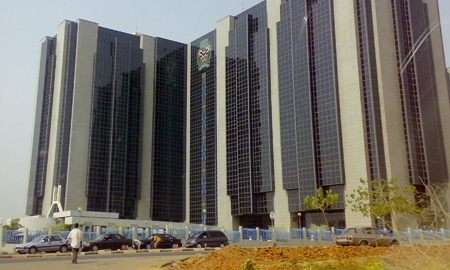A strong and stable financial sector is vital to any growing economy, and the Nigerian government has made a huge and successful effort in recent years to clean up the country’s financial institutions. The banks had grown rapidly in the boom years of the mid-2000s, and by the time of the global economic crisis of 2008-2009, lending and the market capitalisation of traded banks had soared.
That was when the Central Bank of Nigeria, the banking sector’s regulator, stepped in and enforced a plan to raise capital requirements and merge weak banks with stronger competitors. The plan was a roaring success and resulted in a consolidation that has reduced the number of banks in the country to about 25.
The process has been carried out over recent years, and just last year eight banks failed the stringent “stress test” imposed by the central bank that measures if they’re meeting capital requirements. Of the eight, five were bought out by other banks or by investors, and three of them were nationalised by the government.
Three people have been instrumental to getting things back in order. Professor Charles Chukwuma Soludo was Governor of the Central Bank of Nigeria from 2004 to 2009, and he began the cleanup effort that eventually turned the country’s banking sector around.
After Mr Soludo’s term at the central bank ended, the new Governor, Sanusi Lamido Aminu Sanusi, continued and deepened the clean-up, sending teams of accountants to banks to study their books and overseeing the consolidation process.
For his efforts Mr Sanusi has received many accolades, including being named “Africa Person of the Year” by Forbes magazine in 2011. He has been given at least five honorary doctorate degrees by Nigerian universities, and was named Central Bank Governor of the Year in sub-Saharan Africa for two years running by Emerging Markets magazine.
Finance Minister Ngozi Okonjo-Iweala is the third person in the group. She first served in the post from 2003-2006, then went to the World Bank where she worked as a managing director. She returned to Nigeria and the finance minister’s office in 2011 after being offered the job by new Nigerian President Goodluck Jonathan, who expanded the position by adding the portfolio of Coordinating Minister for the Economy.
The work of all three has been widely praised in Nigeria and abroad. Their combined effort returned the country’s financial sector to robust good health, and put in place a framework to keep it that way, while facing strong opposition from powerful groups determined to defend their interests.
An important part of the clean-up effort was the establishment of the Asset Management Company of Nigeria, or AMCON, in 2010. AMCON was tasked with buying up non-performing loans from ailing banks and then restructuring them before selling them back to investors. The effort was vital to re-establishing Nigeria’s banks as solid financial institutions with strong capital bases.
Now Nigeria’s financial sector is back to normal, and growing using a sustainable, long-term model that will permit it to continue to serve the country’s economy by financing businesses and lending to consumers. The country’s record of strong economic growth, with gross domestic product expanding by more than 7 per cent in each of the past three years, makes a strong financial sector necessary.
With that pace of growth, Nigerian banks will be able to keep themselves busy, and prosperous, by funding worthwhile projects, while at the same time they also have an enormous retail market just waiting for them to expand into. Only about 22 million people in the country have bank accounts, in a country with a population of around 170 million.
The country’s banks lag behind other emerging markets when comparing the amount of total loans to GDP. Nigeria’s total lending is equal to about 32 per cent of GDP, compared with about 90 per cent for South Africa. While those two countries’ economies are quite different, the ratios do point to the potential for growth that exists in Nigeria.

0 COMMENTS